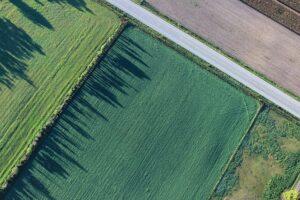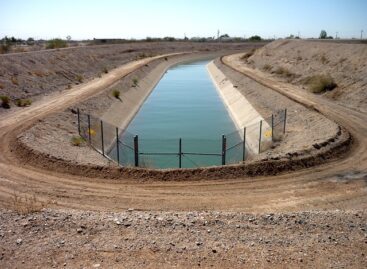Innovation and knowledge transfer also play a major role in increasing sustainability
It is necessary to disseminate modern technologies and sustainable practices in agriculture to address environmental challenges. This also helps the long-term competitiveness of the sector.

(Photo: Pixabay)
The National Environment, Water Management and Sustainability Department and the Biomass Based Farms Sub-Department of the National Chamber of Agriculture (NAK) held a joint meeting in Dunaharaszti. The aim of the event was to discuss the sustainability challenges and innovation opportunities in agriculture, with particular attention to water management, biomass-based farming and green subsidies.
The three pillars of sustainability are environmental protection, social well-being and economic stability
Sustainable agricultural practices not only play a key role in maintaining environmental balance, but also contribute to improving the quality of life of rural communities and the long-term economic development of the country. NAK is committed to sustainable agriculture, paying special attention to the coordination of environmental objectives and the interests of farmers. The Agri-Environmental Payments (AKG) and the Support for Organic Farming (ÖKO) applications not only support sustainability, but also increase the competitiveness of Hungarian farmers. However, due to the complexity of the applications, understandable and concise information is essential, which NAK continuously provides. Developing digital solutions and improving the availability of information is one of the chamber’s priority goals so that farmers can use the support opportunities as successfully as possible.
The requirements of the Common Agricultural Policy (CAP) and the support system will be amended from 2025, with the aim of further strengthening sustainability practices
The priority task of the Green Support Unit (ZTE) established at NAK is to support producers in the implementation of the green interventions of the CAP Strategic Plan. ZTE – as part of the CAP network – promotes sustainability measures, supports knowledge sharing and builds a green expert network. The aim of this network is to provide farmers and professionals with up-to-date information through a central knowledge base and regular training. The focus of ZTE’s activities is on the promotion of sustainable farming practices, including regenerative farming, organic farming and nature-based forestry measures. Developing knowledge content and organising demonstration events, sharing good practices helps farmers, experts and decision-makers to cooperate and achieve environmental sustainability goals more effectively. The relationship between sustainability and innovation is particularly important, and modern technologies available in agriculture – such as precision farming, the use of microbiological preparations and the development of a network of demonstration farms – can play a significant role in the dissemination of sustainable production practices.
NAK
Related news
Irrigation water resources equivalent to one-third of Lake Balaton are available
Despite the extraordinary drought and lack of precipitation, we can…
Read more >Free irrigation water provided to farmers is a key element in the fight against drought
Free irrigation water provided to farmers is a key element…
Read more >Corporate leaders’ commitment to sustainability at record level
According to the latest data from the K&H Sustainability Index,…
Read more >Related news
Temu has already targeted the European food market
The Chinese-rooted Temu is posing an increasingly serious threat to…
Read more >Irrigation water resources equivalent to one-third of Lake Balaton are available
Despite the extraordinary drought and lack of precipitation, we can…
Read more >Free irrigation water provided to farmers is a key element in the fight against drought
Free irrigation water provided to farmers is a key element…
Read more >




